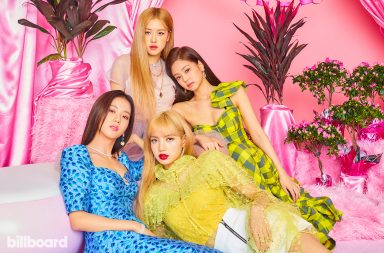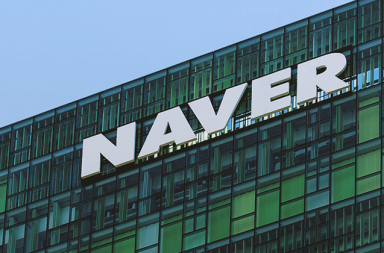
When discussing entertainment companies in South Korea, the top three companies surface immediately – SM Entertainment, YG Entertainment, and JYP Entertainment. Their focuses are arguably similar: primarily focused on forming and managing idol groups, while also managing other artistes ranging from non-K-pop musicians to actors. Beyond the company’s functioning, these three well-established companies have a striking similarity in terms of their marketing style. As can be seen from the company names, the founders have a large stake in the branding of the companies. This is all dandy and well, until something bad happens, and as we all know by now, YG is taking another hit after Yang Hyun-suk‘s sex and drug scandal broke out. Looking at how things are going south for YG, it is a good time to assess the viability of relying on a founder’s image for brand making in the K-pop industry.
It is hard for consumers not to make links between brand and founder when their initials make up the company’s name. Whether it is YG, SM, or JYP, even a brief glance would likely remind anyone familiar with the industry of the respective founders. Such a prominent focus on a company’s founder is not necessarily a bad thing, but can come with numerous benefits. Not only is it cheap (no extra costs for making a founder and/or CEO speak for the company), but these individuals also make it easy for consumers to recognise a brand or company.
These founders and oftentimes company CEOs, depending on how their public image is constructed and how they present themselves in public and especially to the media, can easily establish the culture of their respective companies. Their personality is likely to be seen as reflecting the way their company’s artistes are treated and nurtured.
In South Korea, this image construction comes through a unique tendency for artistes to continually refer back to their CEOs and for these CEOs themselves to have a prominent media presence. Long-time K-pop fans would know about the voice imitations YG artists used to perform of Yang Hyun-suk on variety shows. Whether it was Big Bang or 2NE1, everyone from YG seemed to be able to perform this particular CEO imitation flawlessly. Even without Yang Hyun-suk being present, audiences are constantly reminded of his position as the company’s founder and of course, also of his crucial role in nurturing these Hallyu stars to their stardom.

On the other hand, there is also the appearance of Park Jin-young, Yang Hyun-suk, and Yoo Hee-yeol (Founder of Antenna Music) on audition programme K-pop Star. They appear as the head executive member of their respective companies, holding power individually to recruit or reject participants. They require no discussions with team members or a board; their word is rule here. Once again, the impression of these individuals as leading and seeming to be the utmost authority of their respective companies are more deeply reinforced for consumers.
But being the face of a company is not an easy job, and all that power comes with an immense responsibility of having to lead by example – or at least consumers would expect that with the amount of influence these founders have, they are to set themselves up as role models for the budding artistes under their wing.
However, the fallibility of human beings is perhaps the only certainty we have in the world, and once a founder falters, his company will be dragged down in dirt. The recent scandal involving Yang Hyun-suk has resulted in plummeting share prices for YG. Once allegations were raised against him for being involved in procuring sexual services for foreign investors, YG’s stock dropped from 32,800 KRW a week prior to 28,700 KRW. That was reportedly the lowest share price the company had hit since a year ago.

At present, Yang Hyun-suk has resigned from the label where he was Chief Producer, and his brother, Yang Min-suk, who had been CEO of the company has also stepped down. This followed after further allegations about Yang Hyunsuk attempting to cover up the accusations regarding the drug scandal involving iKon’s B.I. Things do not seem to be taking any turn for good, especially with the news of B.I. having his contract terminated after yet another drug scandal from a YG artist. If Burning Sun had not been a terrible enough controversy, YG’s own questionable activities make it hard not to speculate if the company’s culture is in fact for more toxic than what we know. If the face of a company is said to be thus tainted, it makes me wonder what values are in fact inculcated (or not) in the company’s artists.
An added consequence to all this brouhaha is the demand for a boycott of all things related to YG. Not only are K-pop fans demanding this, even Mnet Gallery, a popular K-pop forum, has announced a boycott. And if Yang Hyun-suk’s scandal leads to TV station bans, which would also mean potentially denying mentions of his name of television, it would need a re-navigation of the entire company about its own name and identity. The most prominent question being: would YG have any standing or dignity left once its founder has tarnished his own namesake and is no longer part of the label?
The situation for YG is still a brewing pot of trouble, with the light at the end of this dark, dark tunnel a long way away. However, there are lessons to be learnt about branding and marketing from this fiasco for now. Utilising a founder and his image has to be done meticulously and strategically to maximise profit and minimise damage. Rather than building only a personality, it seems far more crucial to build an image that extends beyond the founder himself, or one that even stands alone. As Michael Dubin of Dollar Shave Club states, “There is some brand recognition that comes with putting me in the ads, but at the same time it’s important to create a brand that exists outside the founder’s identity.”
Many entertainment companies in South Korea avoid having their CEOs take the spotlight. Not only are their names unrelated to their labels, they hardly appear on television, and especially not as regulars on shows. To put it poorly, this means that they could easily be replaced without the company’s image suffering from much harm. The activities that occur in the boardroom are not obviously tied to the artists and the outward label image. This in fact protects the artists from having to face threats like a potential boycott (as with YG artists), considering that they should not be held responsible for the personal and private activities of their CEOs.

Artists like BTS (BigHit Entertainment), Mamamoo (RBW), Seventeen (Pledis Entertainment), and more, are topping charts without specific attention directed at their labels. Arguably, even for BTS, it is the accomplishments of the artists themselves that has led to the increase in recognition for BigHit Entertainment. Even so, attention is still largely focused on the group.
However, if the deed has been done, and the label name has already been established as a namesake, perhaps the best model we have so far would have to be JYP. As much as the label relies on Park Jin-young as a spokesperson, the company has managed to market itself as prizing integrity and the nurturing of its artists moral characters, in addition to their performance skills.
It is not hard to find videos of Park Jin-young giving speeches about JYP’s training programme or the company’s future plans. This is certainly an attempt to channel the spotlight from himself to the value of the label itself and an assurance of its culture, where his speech on the Niki Project in Japan highlights the label’s training scheme consisting of education on public manners and etiquette. Going beyond simply having a media presence, it seems far more valuable to spend time establishing a more transparent organisation consumers can trust.
Perhaps to a large extent, Park Jin-young himself is highly aware of his own personal image as inextricably tied to that of his label. And it is easy to see how he chooses to continually expresses his willingness to improve the well-being of his label’s artists. Probably the most prominent would be the organic cafeteria he has built in the JYP building, admitting that he is willing to pay almost 2 billion KRW a year because he wants his artists to be healthier. His public image, at the very least, is one that seems trustworthy and reliable, a nurturing leader, as opposed to the aloofness that comes with Yang Hyun-suk or even Lee Soo-man who hardly even appears on television but is frequently mentioned in passing by SM artists on variety shows.
Whatever JYP is doing, they sure are doing it right, and certainly better than YG. It is this trust between consumer and label that needs to be preserved at all costs if a company wishes to succeed through relying on a founder’s image as part of its branding. Arguably, if Park Jin-young makes one wrong move, he will easily be deemed a hypocrite, but for now, it seems that he has delivered on his promises and we can place faith in the artists not to go down dark paths.
Founder branding is a high-stakes and high-risk strategy, and one wrong move could crush a whole company and the hard work of all its artists. Unless a founder can guarantee the infallibility of his actions, perhaps it would be best to avoid the naming a company after himself. It would be far wiser to let the artists stand for the company. After all, it does seem a tad bit narcissistic to name a company after yourself, doesn’t it?
(Branding Strategy Insider, Digital Music News, Forbes [1][2], Korean Herald, Korea Times, Nate, Naver, The New York Times, The Straits Times, YouTube. Images via JYP Entertainment, SBS, RBW, YG Entertainment, Yonhap News)


